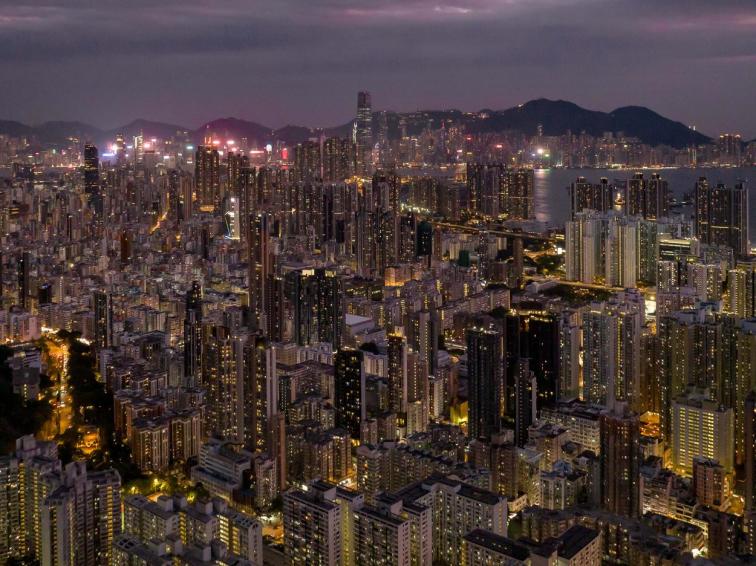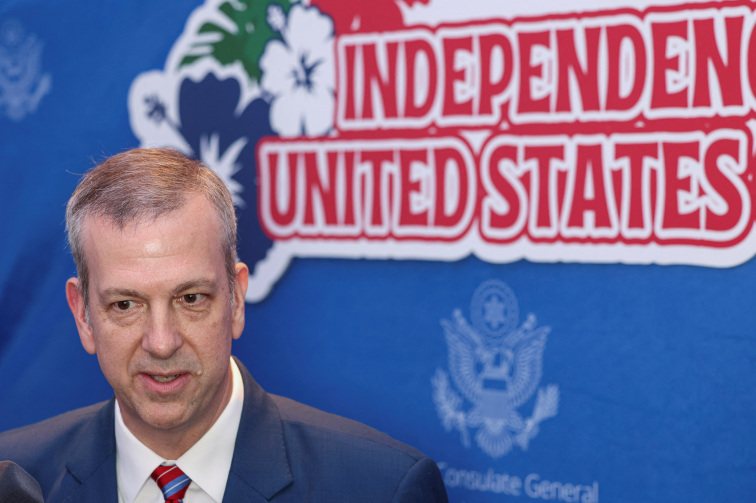BEIJING, CHINA - MARCH 11: China's President Xi Jinping (L) speaks with former Premier Li Keqiang (C) and National People's Congress Chairman Zhao Leji (R) during the fourth plenary session of the National People's Congress on March 11, 2023, in Beijing, China. China's annual political gathering, known as the Two Sessions, convenes the nation's leaders and lawmakers to set the government's agenda for domestic economic and social development for the next year. (Photo by Lintao Zhang/Getty Images)
[People News] On June 30, the Chinese Communist Party (CCP) Politburo finally held a meeting after a long delay. The last Politburo meeting took place on April 25, meaning a 65-day gap between the two. On June 29, just a day prior, an appeal letter from Cheng Hong — the widow of former Premier Li Keqiang — surfaced overseas, calling on the CCP Central Committee to thoroughly investigate the cause of Li Keqiang’s death. Some analysts believe the emergence of Cheng Hong’s appeal letter forced Xi Jinping to personally convene the Politburo meeting the very next day and to announce the establishment of a new decision-making and coordination mechanism under the Central Committee.
On June 30, Chinese state media reported that Xi Jinping presided over the Politburo meeting, during which the "Working Regulations of the Central Committee’s Decision-Making and Coordination Mechanism" were reviewed. According to the report, the role of this mechanism is to strengthen centralised and unified leadership of the CCP Central Committee on major tasks and to facilitate the implementation of critical missions.
Commentator Jiang Feng, host of the program Jiang Feng’s Commentary, believes the new mechanism is meant to sideline Xi Jinping. He argues that the power platform Xi once used to pass policies and suppress dissent is being institutionally dismantled. The anti-Xi faction now has a legitimate platform within the system, signalling that the Party has entered a temporary state of collective leadership.
The report also emphasised that the coordination mechanism must “coordinate but not replace, act without overstepping.” Jiang Feng interprets this not as coordination, but as a power grab. And the irony, he notes, is that it was Xi Jinping himself who publicly announced it at the meeting.
A day earlier, a letter signed by Cheng Hong began circulating among overseas independent media circles. Cheng Hong, the wife of the late Premier Li Keqiang, addressed the letter to senior CCP elders. In the letter, she demanded an explanation for her husband’s death.
Jiang Feng commented that Cheng Hong understands Chinese politics better than most. With calm and precise wording, she made clear to the Party and to the public: the culprit is still in power. He believes this was the trigger that led to the June 30 Politburo meeting.
In her letter, Cheng Hong wrote that she has been unable to sleep after reading online accounts alleging that Li Keqiang was assassinated. Although she cannot verify those details, she urged the Central Committee to conduct a thorough investigation.
Cheng Hong also revealed that in the weeks leading up to his death, Li Keqiang often spoke of the possibility that something might happen to him. The staff around him were constantly being rotated, and unfamiliar faces frequently appeared near him.
She further disclosed that the trip Li Keqiang took to Shanghai — during which he died — was personally arranged by Xi Jinping. She stated she could not tolerate the truth being covered up. She called for the establishment of a special investigative task force — preferably led by the military — to uncover the truth about Li Keqiang’s death and to make the findings public. At the end of the letter, Cheng Hong referenced Li Keqiang’s parting words upon stepping down from office: “People are working, but Heaven is watching.”
Jiang Feng asserted that the Politburo meeting on June 30 was clearly triggered by this letter. All members of the Politburo understood this. It was, he claimed, a compromise following the intervention of General Zhang Youxia and the military to secure the situation. "This is not reform," Jiang said. "It is an institutional confession extracted under pressure. This is not top-level design; it is a forced disarmament at the top. This is the true nature of the coordination mechanism — not a tool of Xi’s political manoeuvring, but rather the institutional handcuffs of collective red-rule restraint. Li Keqiang’s death has finally pried open the door to a shift in power."
Earlier, People News received a tip from a mysterious source claiming to have been involved in Li Keqiang’s assassination, revealing detailed accounts of the plot. The mastermind, the source claimed, was Xi Jinping. These revelations sent shockwaves through overseas political circles — and now, these reports are circulating back into China.
(Originally published by People News)










News magazine bootstrap themes!
I like this themes, fast loading and look profesional
Thank you Carlos!
You're welcome!
Please support me with give positive rating!
Yes Sure!